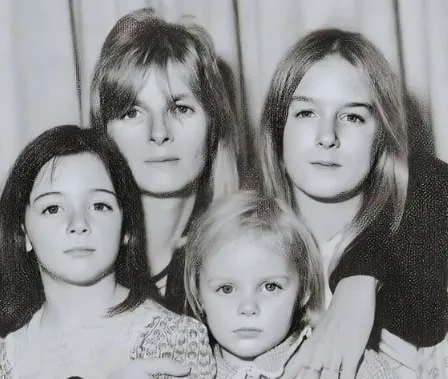In the pantheon of iconic coming-of-age films, John Hughes' "The Breakfast Club" stands as a timeless classic. Released in 1985, this remarkable film continues to captivate audiences, young and old, with its portrayal of teenage angst, the power of empathy, and the enduring relevance of its themes. With a stellar ensemble cast, a brilliant script, and a deft directorial touch, "The Breakfast Club" has secured its place as a touchstone of the teen film genre, a testament to the complexities of youth, and a cinematic treasure that continues to resonate with viewers. In this extensive exploration, we delve deep into the world of "The Breakfast Club," examining its cultural impact, characters, and the enduring appeal of this cinematic masterpiece.
(Watch the video below)

The Film's Plot and Characters

"The Breakfast Club," set during a Saturday detention, brings together five high school students from diverse backgrounds and stereotypes. The characters are vividly portrayed: John Bender, the defiant delinquent; Claire Standish, the popular princess; Brian Johnson, the nerdy brainiac; Andy Clark, the star athlete; and Allison Reynolds, the enigmatic loner. Their interactions, initially marked by hostility, gradually evolve into candid conversations that reveal their personal struggles. As they break down stereotypes, the film delves into the complexities of teenage identity, highlighting their shared experiences of parental neglect, peer pressure, and academic stress. This character-driven narrative forms the heart of "The Breakfast Club," making it a timeless exploration of youth and identity.
Teen Identity and Stereotypes

One of the central themes of "The Breakfast Club" is the exploration of teenage identity and the destructive nature of stereotypes. Each character embodies a well-defined high school stereotype, reflecting the societal pressures and expectations placed upon teenagers. Through candid and often emotionally charged conversations, the characters slowly break down these stereotypes, revealing their true selves.
John Bender, the troublemaker, is not just a defiant delinquent but a deeply wounded individual with a troubled home life. Claire Standish, the popular girl, grapples with the constraints of her social status and the superficiality of her friendships. Brian Johnson, the brainiac, is overwhelmed by academic pressure. Andy Clark, the athlete, struggles with the burden of living up to his father's expectations. Allison Reynolds, the loner, yearns for acceptance and connection.

As they share their stories, fears, and insecurities, the characters realize that they are not defined by their stereotypes. Their common experiences of parental neglect, peer pressure, and loneliness unite them in a powerful and poignant way, showcasing the universality of teenage struggles and the need for understanding and empathy.
Emotional Depth and Vulnerability

"The Breakfast Club" is renowned for its emotional depth and the vulnerability displayed by its characters. The film allows these teenagers to speak honestly about their lives and feelings, touching on issues such as parental neglect, peer pressure, academic stress, and the desire for authentic connections. This emotional authenticity resonates deeply with viewers, transcending generational boundaries.
One of the film's most memorable moments is the characters' group therapy session, where they reveal their personal secrets and fears. This scene showcases the transformative power of honest communication and the importance of acknowledging one's vulnerabilities. In this moment, the characters realize that they are not alone in their struggles, and their shared pain becomes a source of strength and unity.
The Unifying Power of Shared Experience

"The Breakfast Club" demonstrates the profound impact that shared experiences can have on forging connections and breaking down barriers. Throughout the detention, the characters go from being strangers who despise each other to forming a genuine bond based on empathy and understanding. Their shared laughter, confessions, and acts of rebellion create a sense of camaraderie that transcends their high school roles.
The film's ending, with the iconic fist pump, encapsulates this transformation. As Simple Minds' "Don't You (Forget About Me)" plays in the background, the characters leave the school with a newfound sense of self-awareness and unity. The film's message is clear: despite their differences, these teenagers have discovered a shared humanity that bridges the gaps between them.
Social Commentary and Relevance

"The Breakfast Club" also offers a commentary on the educational system and the treatment of teenagers by adults. Assistant Principal Vernon represents the authoritarian figure who fails to understand the emotional needs of the students under his supervision. His condescending and dismissive attitude toward the students reflects the disconnect between adults and teenagers, a theme that resonates with viewers of all ages.
The film's portrayal of the flaws in the education system, peer pressure, and the impact of parental expectations continues to be relevant today. It reminds us that teenagers are not just stereotypes but individuals with complex emotions and experiences that deserve acknowledgment and support.
Impact on Teen Cinema

"The Breakfast Club" has had a profound impact on teen cinema, influencing countless coming-of-age films that followed. It set a standard for authentic storytelling that focuses on the emotional lives of teenagers. John Hughes, the film's director and writer, became a seminal figure in teen cinema, with subsequent works like "Sixteen Candles" and "Ferris Bueller's Day Off" further cementing his status.
The film's enduring popularity is a testament to its ability to resonate with each new generation of teenagers, who continue to connect with its themes of identity, belonging, and self-discovery.
Conclusion
"The Breakfast Club" stands as a timeless masterpiece that transcends the boundaries of age and time. Its exploration of teenage identity, the destructiveness of stereotypes, the power of vulnerability, and the unifying force of shared experience continue to captivate audiences. As teenagers and adults alike grapple with the universal themes depicted in the film, it remains a poignant reminder that, beneath the surface, we are all searching for connection and understanding. "The Breakfast Club" is not just a movie; it is a mirror reflecting the struggles and triumphs of adolescence, a reminder that we should never forget about the power of empathy and the enduring relevance of its message.



